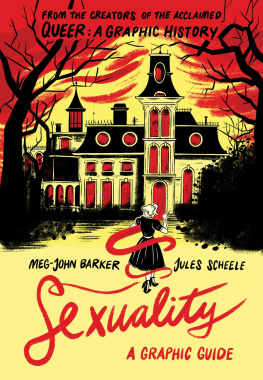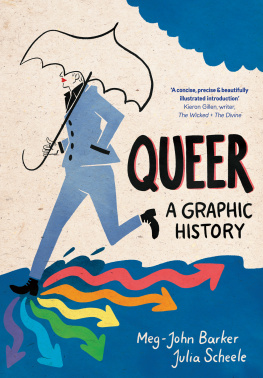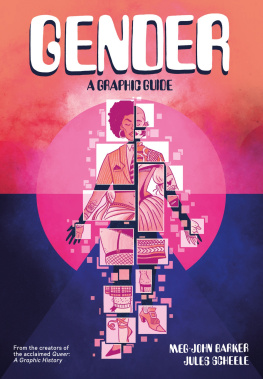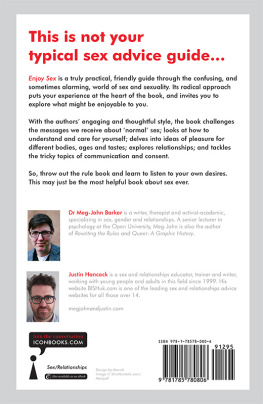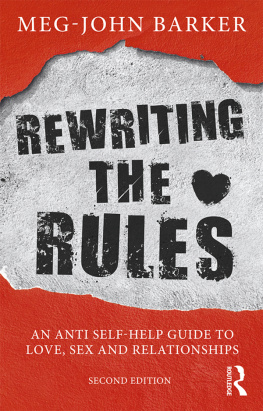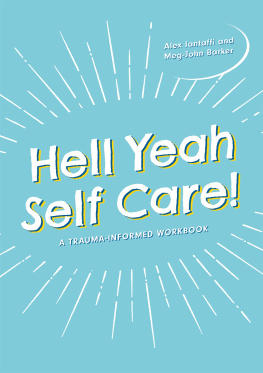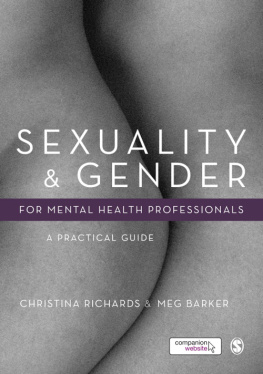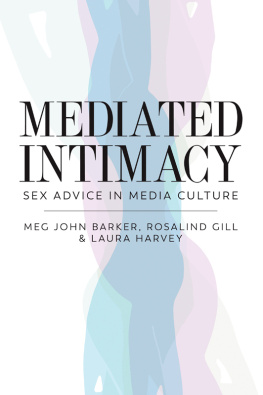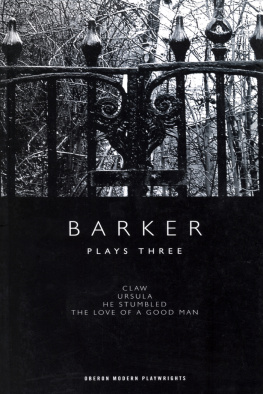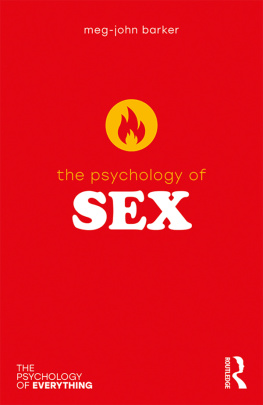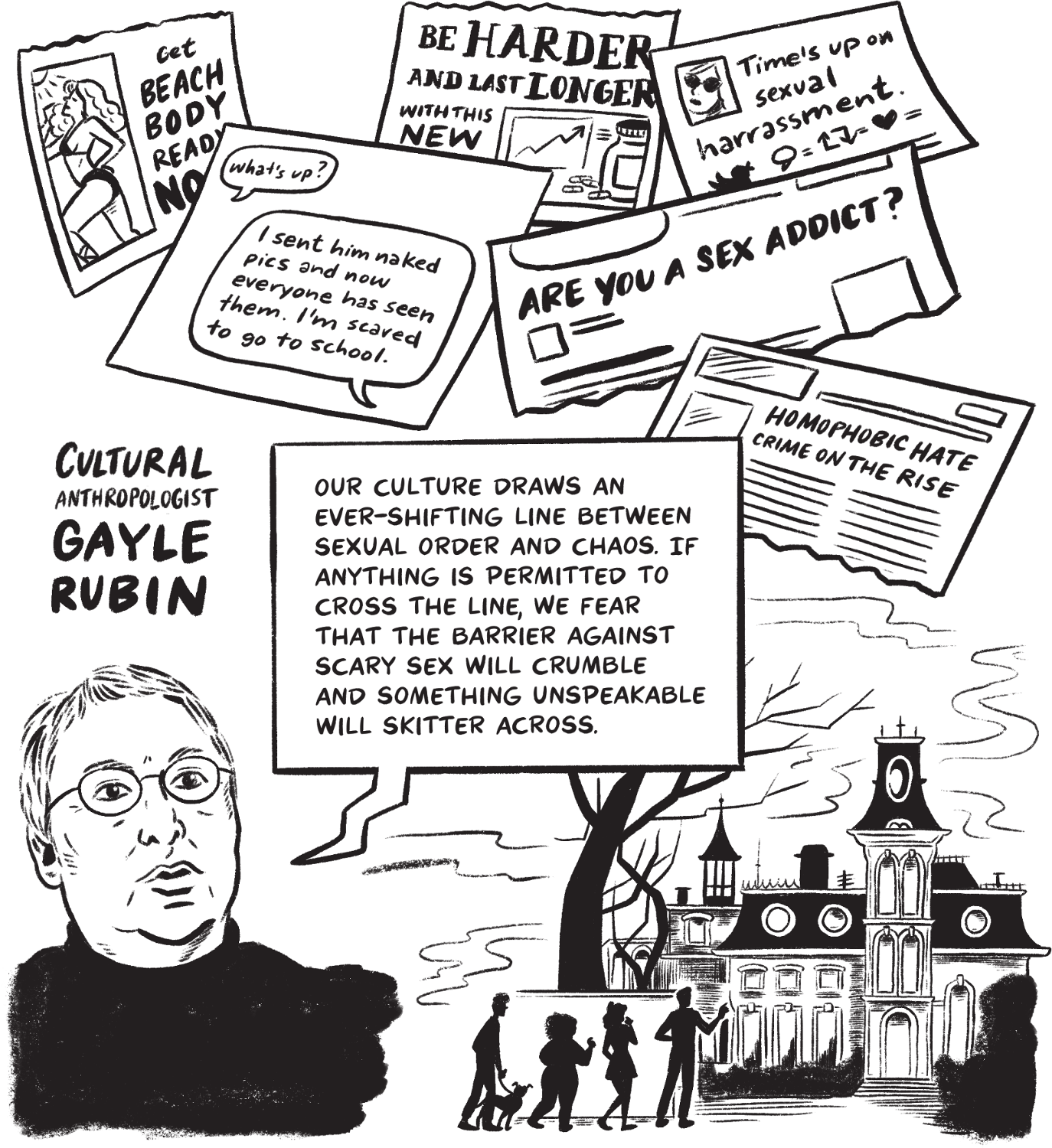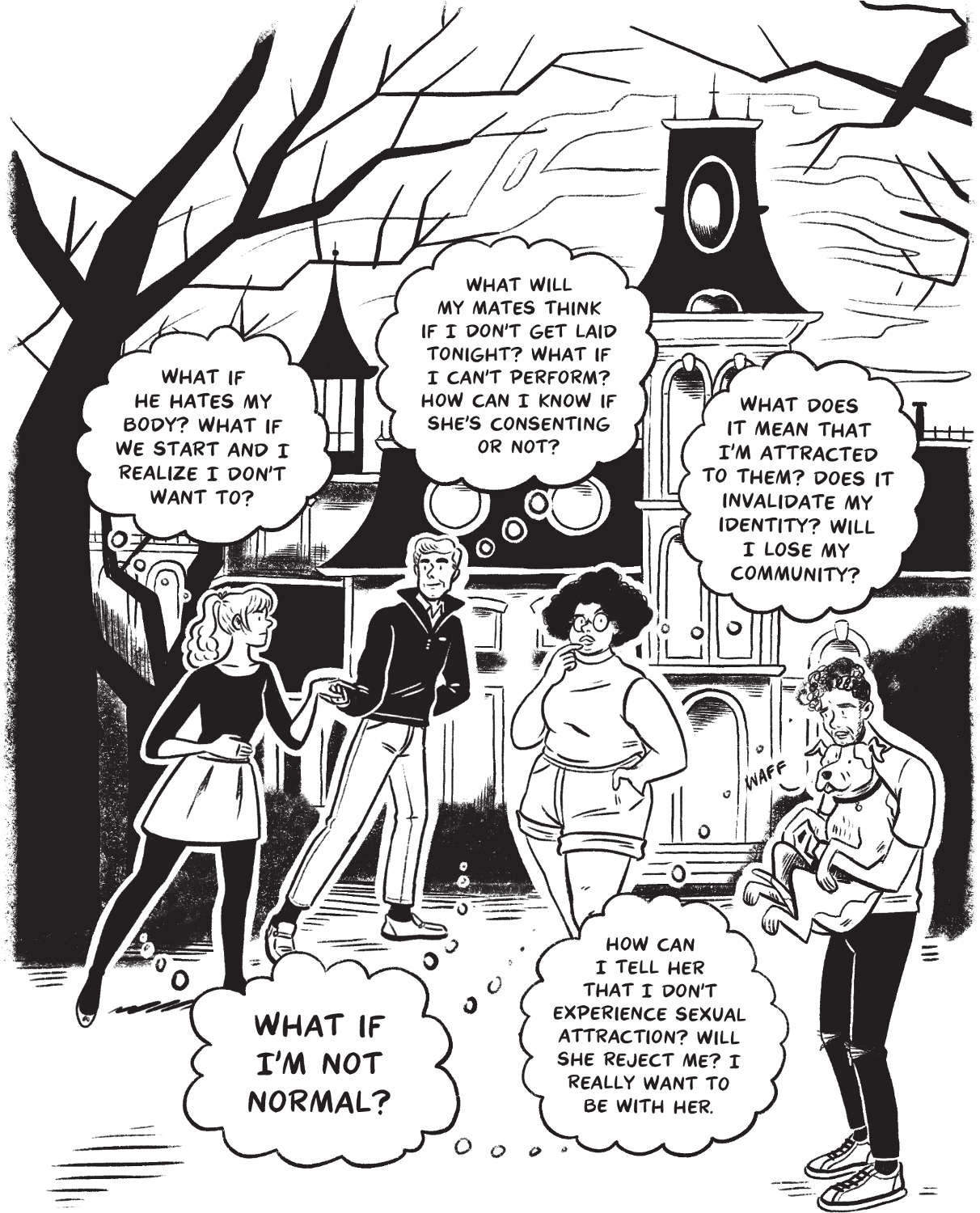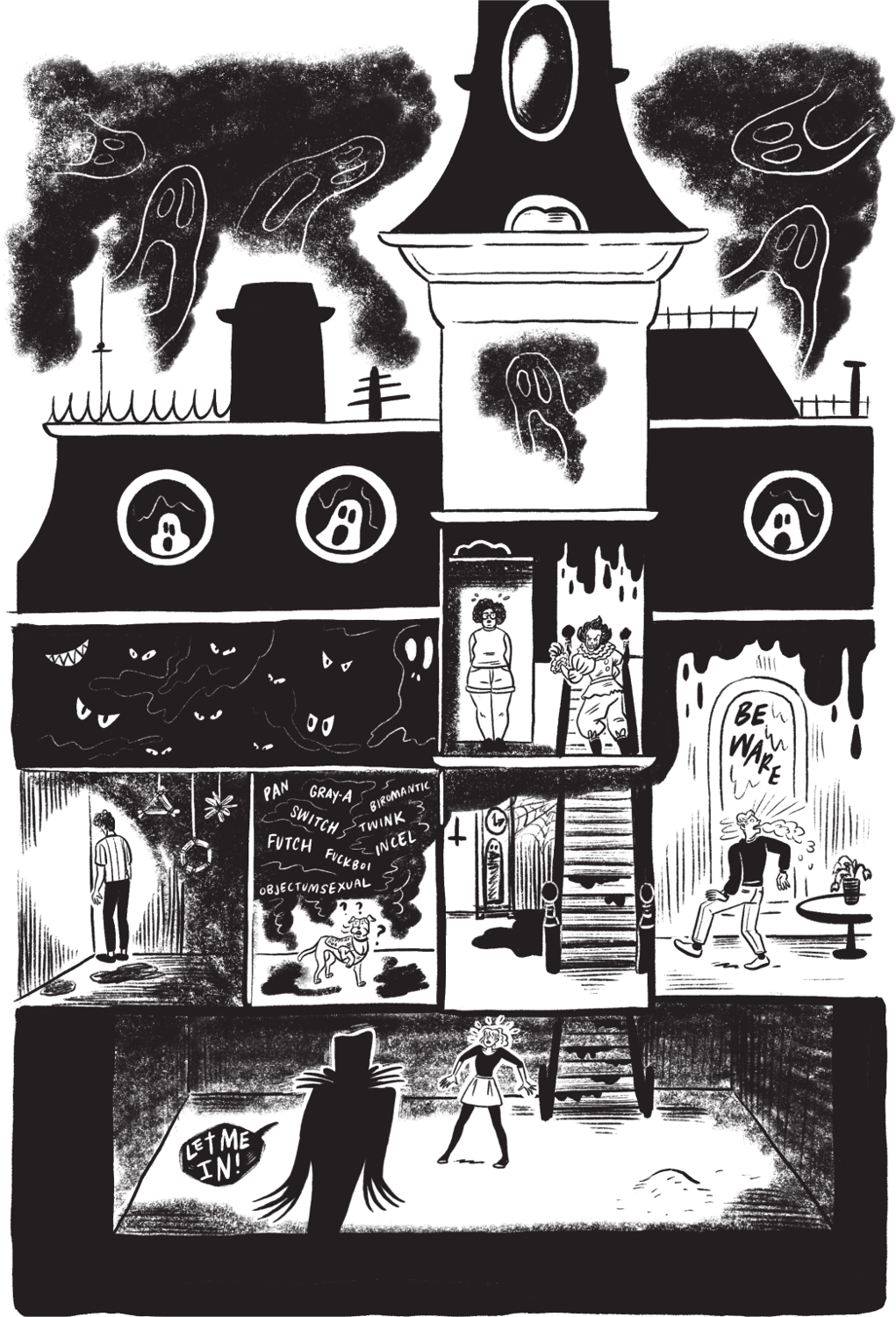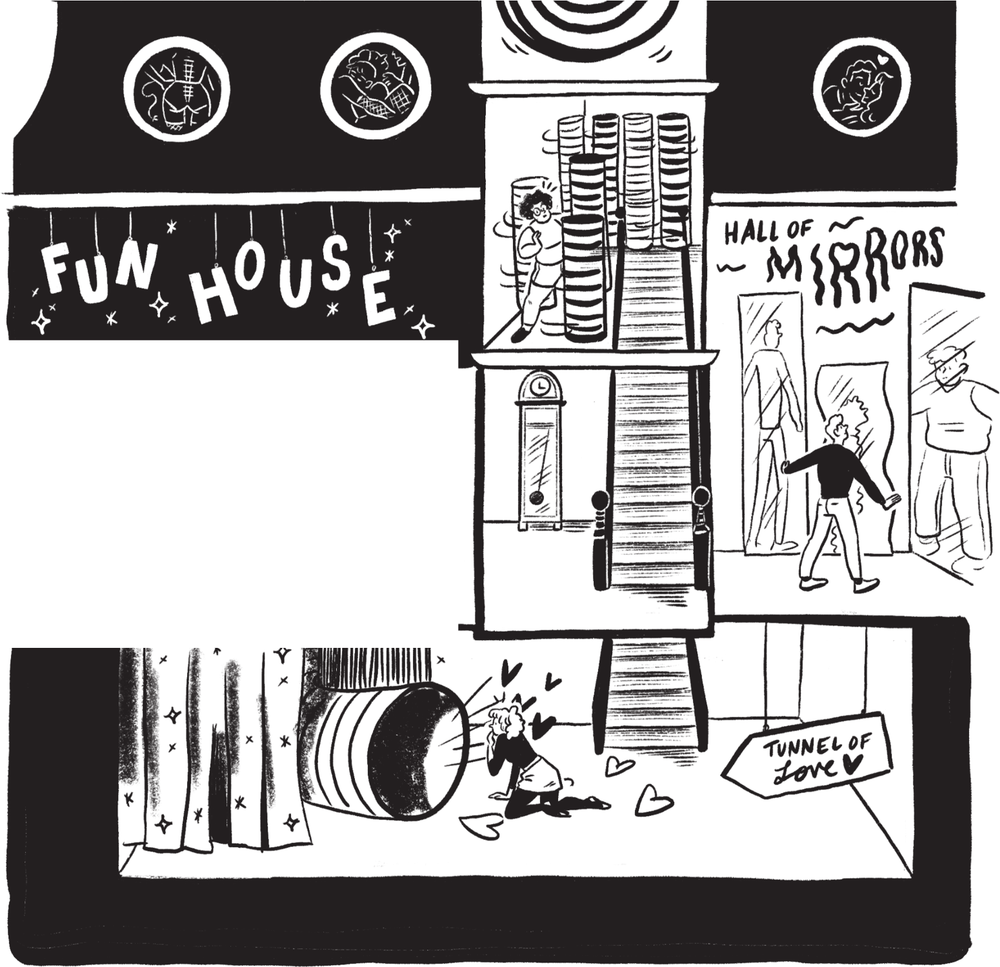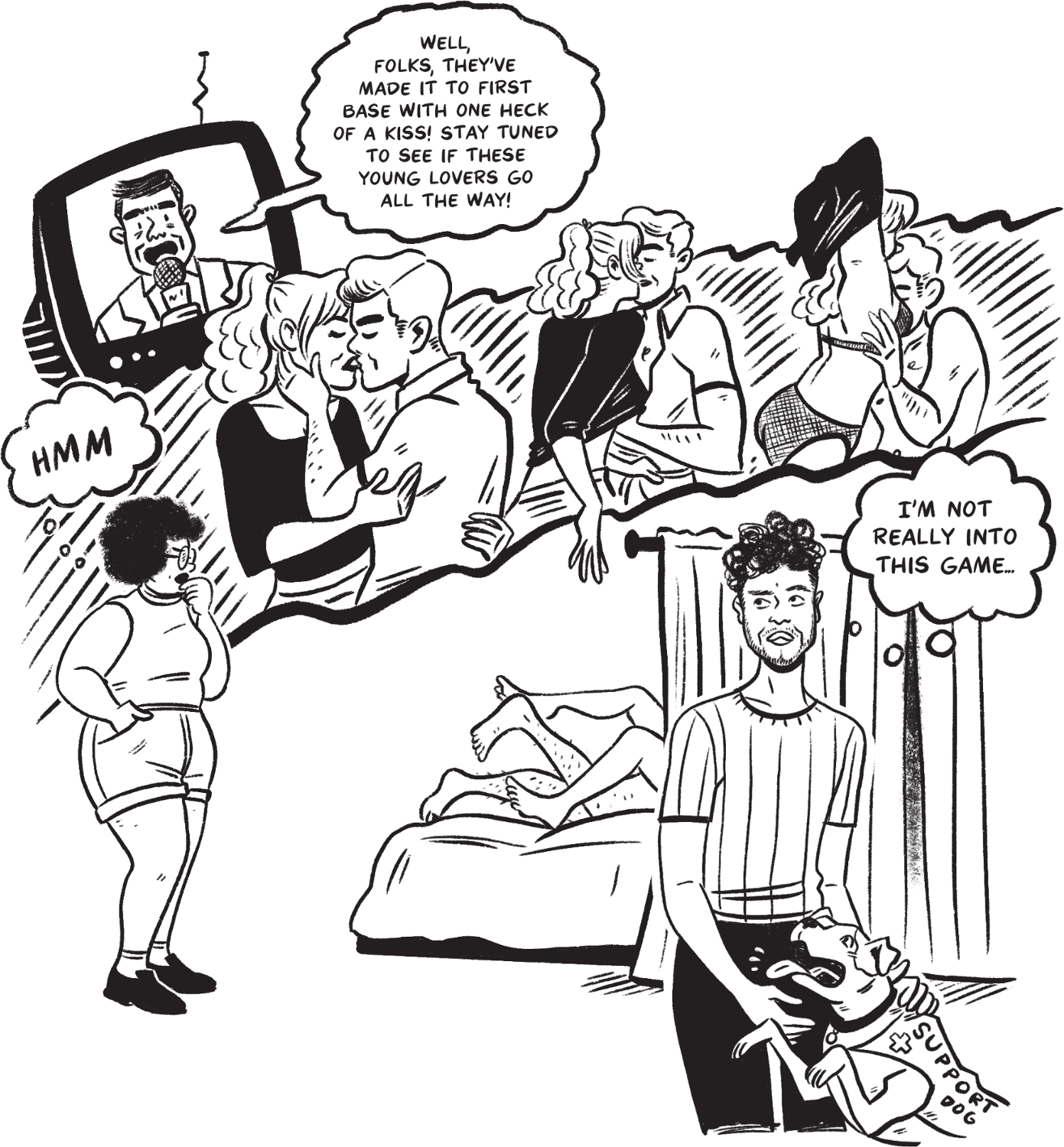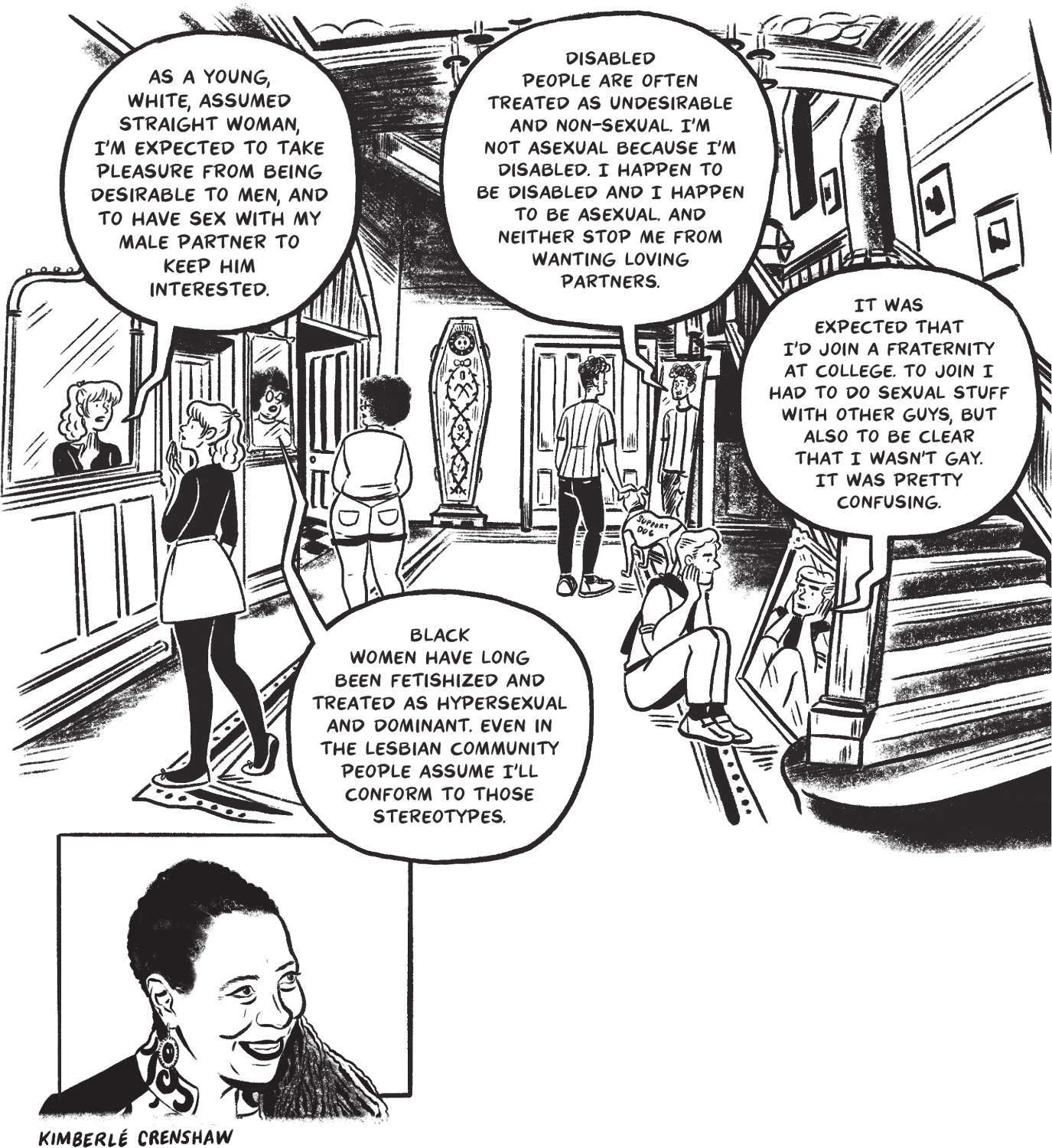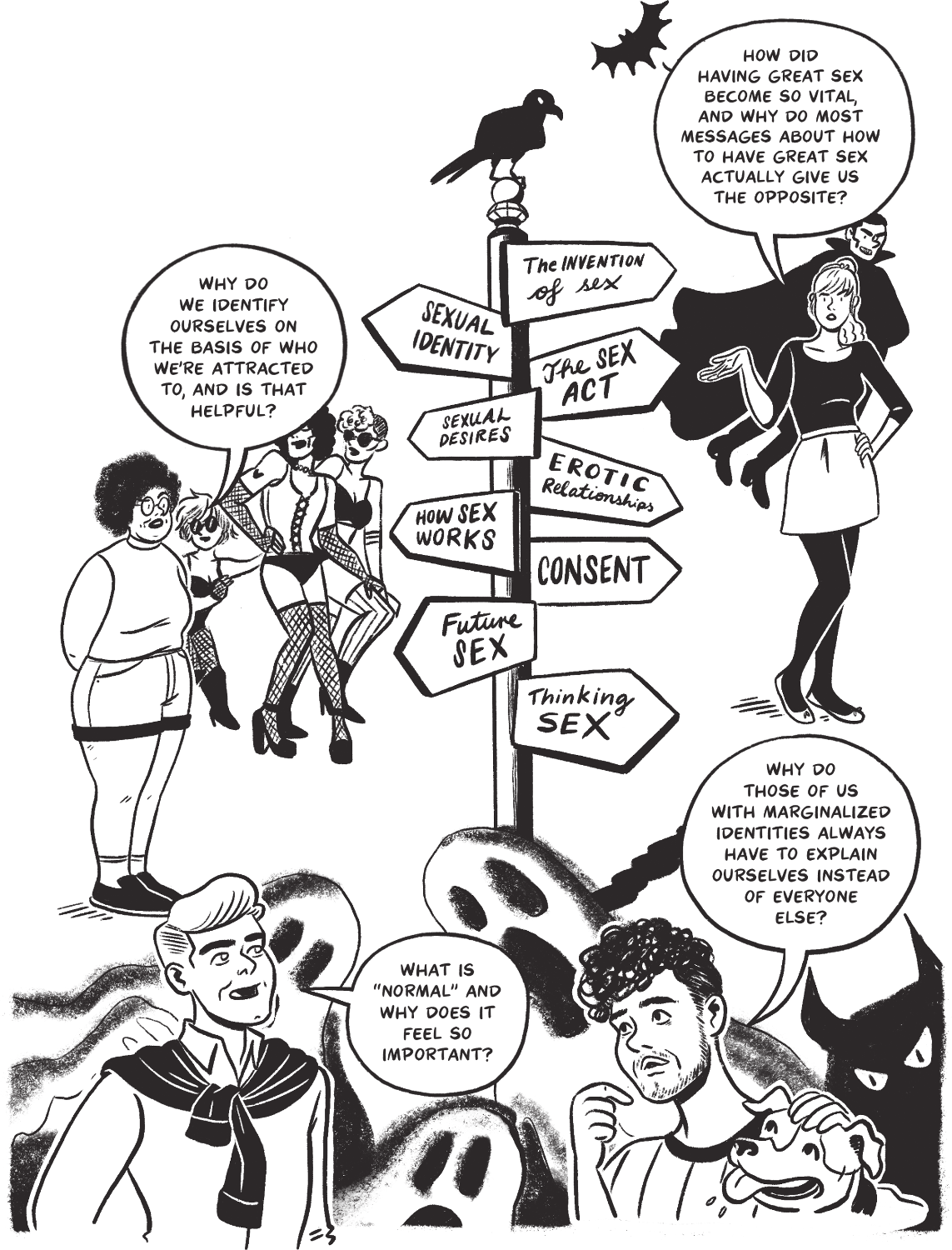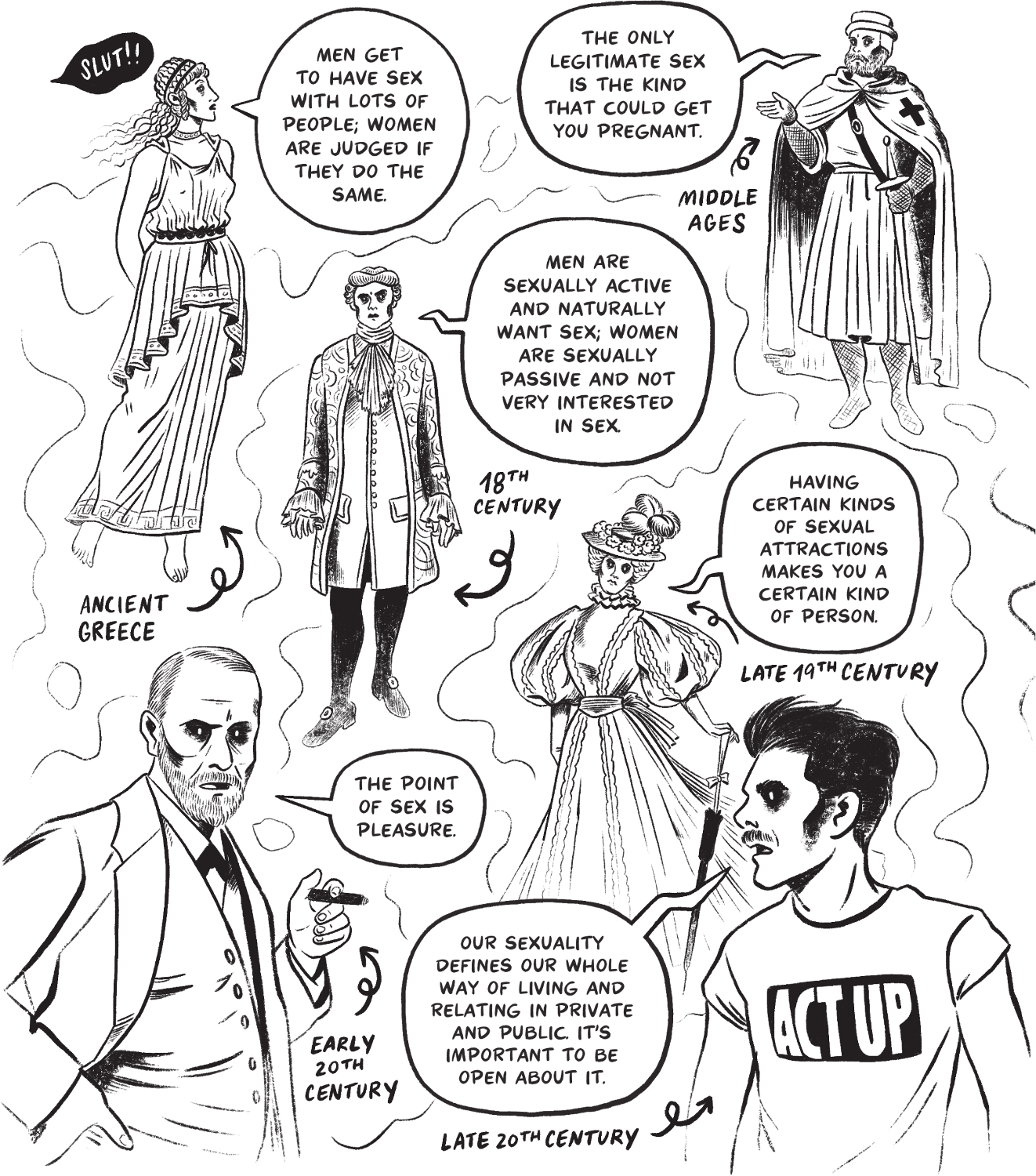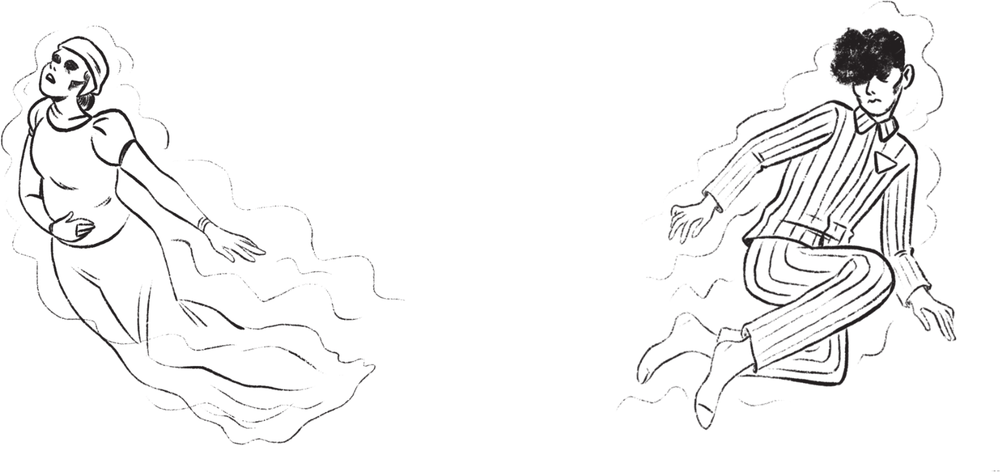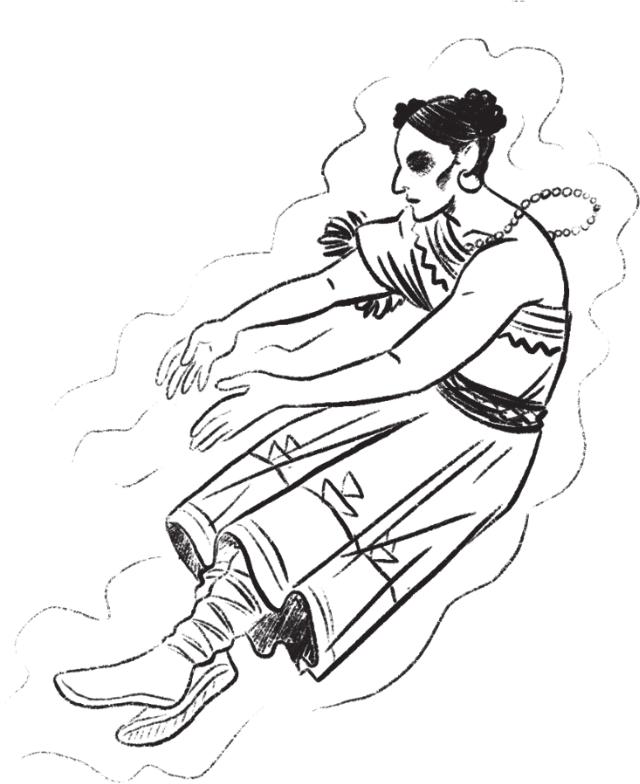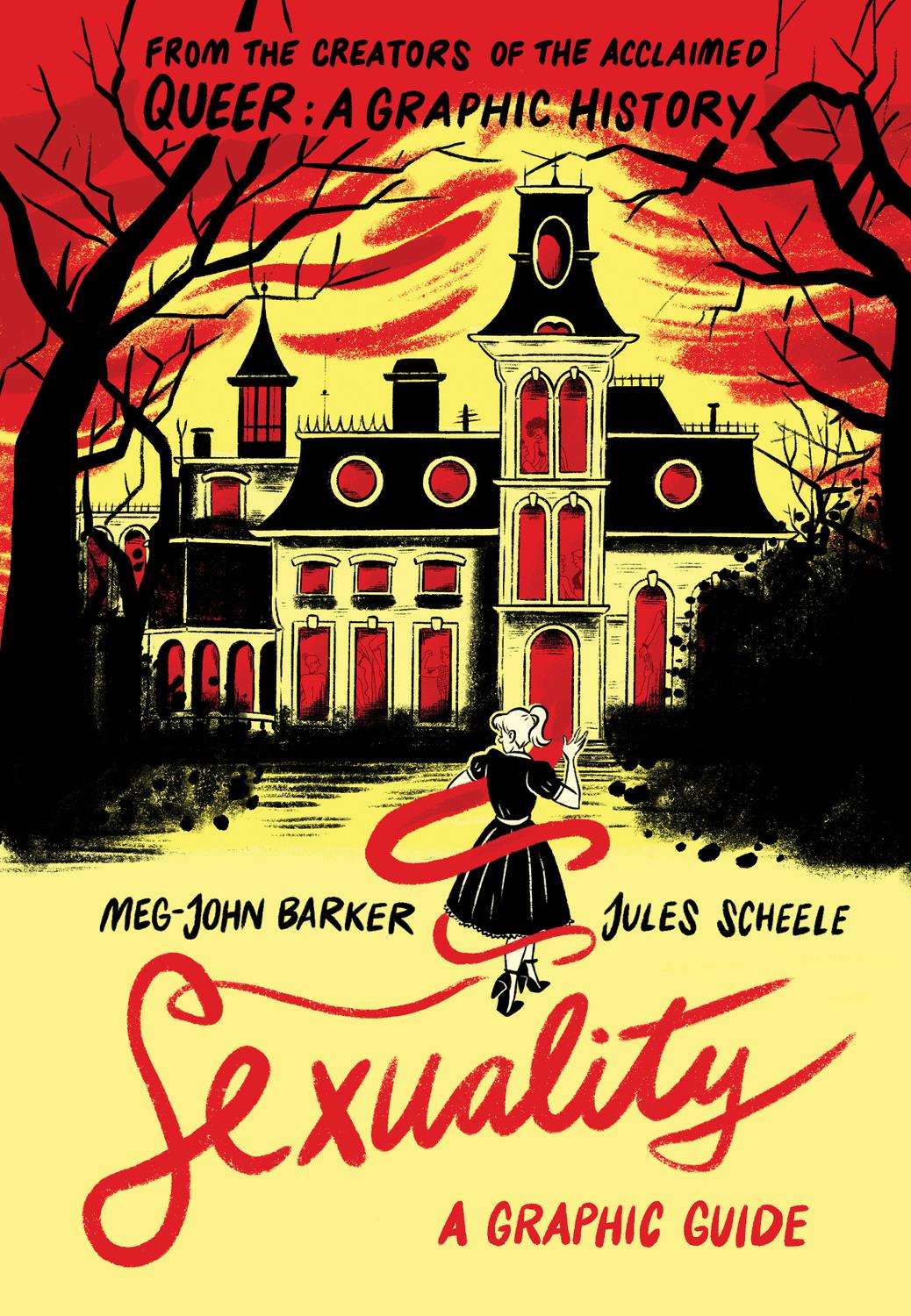
CONTENTS
SEXUALITY: GOING TO THE PLACES THAT SCARE US
Sex is sold to us and used to sell all kinds of things with the promise of great pleasure, liberation, and self-understanding. Its also a topic fraught with confusion, contradiction, and danger. Although sex is everywhere around us in wider culture, its something that most of us actually know very little about because of:
- Stigma around talking openly about sex even with people we have sex with
- Fears around educating kids about sexuality
- The very limited understandings of sex and sexuality that make it into mainstream media, therapy, or sex advice.
SEXUAL FEAR AND SHAME
Despite sex being everywhere, it remains taboo. Most of us hold a great deal of anxiety, embarrassment, and shame about our erotic desires and attractions, our bodies and our desirability, and the ways we do or dont engage in sex.
Our sexuality is often seen as an essential aspect of our identity revealing truths about us that have implications far beyond what we do sexually. We fear discovering that were sexually abnormal or dysfunctional and that this might mean there is something more fundamentally wrong or bad about us.
Fear, shame, and confusion around sexuality are understandable. People are still killed, imprisoned, cast out of their families and communities, medically or psychologically treated, and stigmatized, bullied and discriminated against for having the wrong kind of sexual desires, having sex with the wrong types of people, or at the wrong times. There are huge potential costs to acting on our desires, and to not acting on them. And sex is often bound up with our yearnings for love and belonging, and fears of pain and rejection.
PLEASURES AND POTENTIALS
Our sexuality may also be our passport to pleasure, joy, success, and/or liberation.
- Sex can be one of the most exciting, pleasurable, even transcendent, experiences that many people have
- Being sexually attractive and desirable to others often brings power and success
- Sex provides the possibility of deep, intimate connection with another human being: of being utterly seen and wanted for who we are
- Sexual attraction can be a key component in the excitement of falling in love and bonding with partners
- Our sexual desires may reveal much about our inner lives
- Sexual freedom can be linked to personal and political liberation
- Through our sexual or asexual identities and shared experiences we may find community and belonging with likeminded people
- Claiming our sexualities or asexualities and being open about them can feel a vital way of being authentic, real, and proud.
MULTIPLE MEANINGS OF SEXUALITY
Sexuality refers to both: the constellation of social meanings that our wider culture attaches to sex and our deeply personal individual experience of the erotic.
Sexuality is socially constructed: our society develops and passes on strong messages about what is sexual, which sexual behaviours are acceptable or not, and what it means to have a certain sexuality, through media, laws, education, medicine, and science. At the same time, we all have a lived experience of sexuality which involves our bodies, feelings, and desires, and which shapes our relationships and wider lives. Sexuality is both within us and in the world. How we see our and others sexuality informs which erotic experiences are available to us. People have different experiences and can resist dominant messages about sexuality, and this is part of how cultural understandings shift over time.
Sexuality includes, but is about more than, just having sex. It also includes: our capacity for sexual feelings; the kinds of people were attracted to and how; and how we identify ourselves and how others categorize us.
INTERSECTING SEXUALITY
Sexuality cant be separated from other social structures and our position within them. The way sexuality operates and how we experience it is intrinsically bound up with: gender, race, class, disability, nationality, ethnicity, age, generation, geographical location, faith, and more.
OUR SEXUALITY JOURNEY
If were going to fully understand sexuality, were going to need to confront our social and individual ghosts, monsters, and demons. This book aims to be a friendly guide through this potentially scary, uncertain territory.
Much gratitude to Kimberl Crenshaw and all the other intersectional feminists and critical race theorists who have pointed this out over the years.
It may sound strange, but the ways we currently identify our sexualities, understand our desires, and have sexual relationships all came into being pretty recently. We also remain haunted by the ways of understanding sex that have emerged over the centuries.
HISTORICAL HAUNTINGS
Sexuality is also haunted by the ghosts of all those who have been hurt or lost their lives because of the ways sex has been understood, and policed, over time:
Women who died in childbirth, who had no reproductive rights or access to birth control; people sterilized, killed, and denied relationship rights during eugenic attempts to keep nations pure; black slaves who were repeatedly raped by their owners because they were regarded as property; sexually diverse people and understandings wiped out during colonization; and those who died from HIV/AIDS and other STIs due to lack of available contraception and prevailing attitudes towards sex.
We see the legacy of these historical traumas in the stereotypes and treatment of disabled people, people of colour, working-class people, sex workers, women and queers, in relation to sex.

